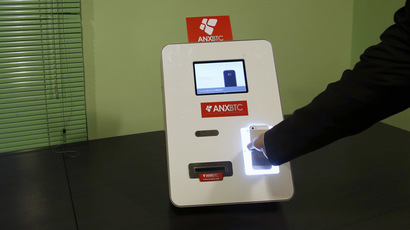Bitcoin’s future may lie in space

Bitcoin miners hope a new initiative from Dunvegan Space Systems and Deep Space Industries Inc. will make the cryptocurrency more secure and easier to access after the two companies announced they will take the peer-to-peer financial system into space.
Jeff Garzik, a core bitcoin developer, issued a press release Wednesday saying that his company (Dunvegan Space Systems) had teamed up with Deep Space Industries to draw up a preliminary design plan that would “develop an orbital system” for a new, non-profit project called BitSat. If successful, a constellation of BitSat systems will float around earth broadcasting a signal that will essentially act as a backup system for the existing bitcoin network.
The BitSat itself is a small 10 centimeter box that could be attached to other spacecraft being sent into space.
“Private spaceflight is breaking big, driving down costs so that great ideas like BitSats are within reach of even volunteer nonprofits,” said Garzik, who is seeking donations to build the space program. “We want to keep bitcoin healthy and free by finding ways to distribute block chain data.”
BitSats’ developers purport that the project, once in motion, will provide an extra verification layers for encoded blocks of bitcoin, thus making transactions more reliable and perhaps eventually more legitimate in the eyes of the international public.
“Deep Space is about using space resources – including space itself,” said Rick Tumlinson, chairman of DSI. “BitSat is actually very much in line with our spacecraft development plans, including another private system we will be announcing in a few months using many of the same components and systems. This means much lower costs – very important for the BitSat effort.”
Garzik simplified his new colleague’s sentiment: “I believe space is the future, and can also be useful right now.”
He estimated that the project will cost somewhere near $2 million, with just over $100 already donated just hours after news of the BitStats plan was made public. More details, including architecture and spacecraft design, operations concept, and the like, will be made public later this summer on BitSats’ Google Group.
The announcement comes at a curious time for the increasingly popular currency, with some experts wondering if bitcoin’s own success will ultimately lead to its demise. Governments and financial institutions have not been more encouraging, with the IRS announcing bitcoin would be regulated as a commodity rather than a currency, and the CEO of Chase bank questioning if users should trust bitcoin (price fluctuated from $230 in April 2013 to below $70 in July, then surpassing $600 in November).
“The rules of the system are not set in stone,” Mike Hearn, a volunteer who helps maintain bitcoin software, told the Economist.
“It’s got this kind of watch-like feel to it,” he said, adding that bitcoin may continue ticking, but “a mechanical watch is fragile and can be smashed.”














